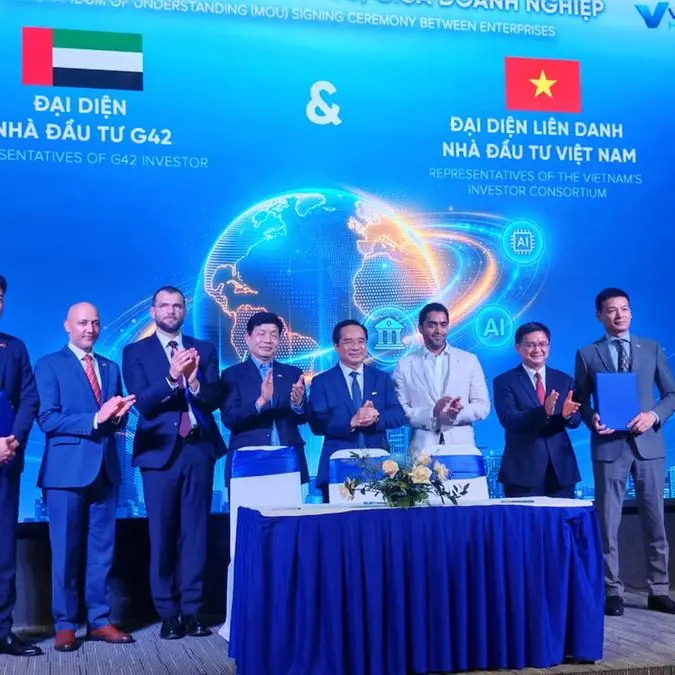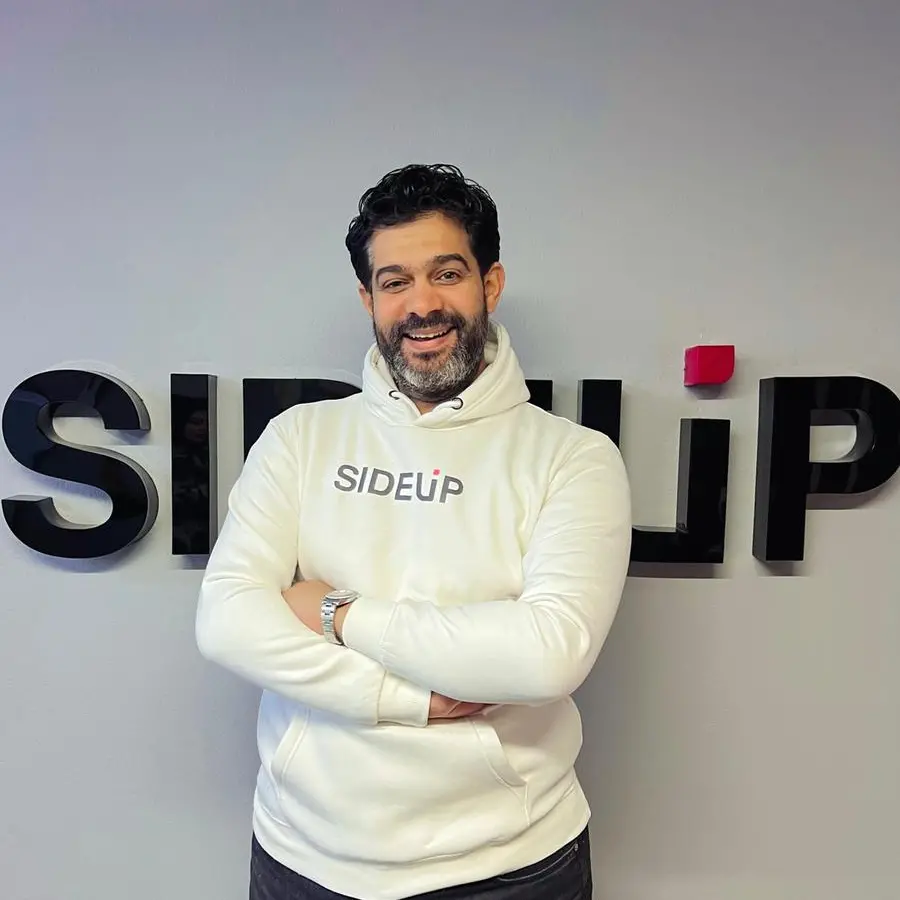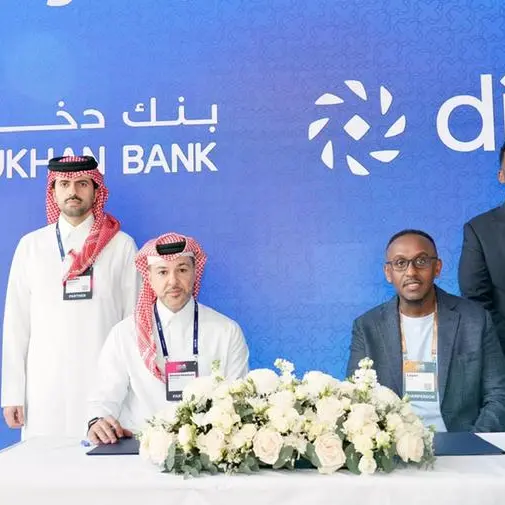Riyadh: Today sees the release of December data from the Emirates NBD Purchasing Managers’ Index® (PMI®) for Saudi Arabia. The survey, sponsored by Emirates NBD and produced by IHS Markit, contains original data collected from a monthly survey of business conditions in the Saudi Arabian private sector.
Commenting on the Saudi Arabia PMI® survey, Daniel Richards, MENA Economist at Emirates NBD, said:
“The headline Emirates NBD Saudi Arabia Purchasing Managers’ Index (PMI) fell to 54.5 in December from 55.2 in November. The renewed dip in the headline index following November’s 2018 high confirms this year as the weakest in the series, averaging 53.8 as compared to an annual average of 58.0 over the previous eight years. This indicates a fairly weak expansion in the non-oil private economy as compared to previous years, even despite the pick-up in oil prices enjoyed earlier in 2018.
“While output dipped from its recent peak in November, it remained comfortably above the 2018 average of 57.6, coming in at 58.2. New orders followed a similar trend, falling from November but at 58.4 still stronger than seen earlier in the year. However, new export orders remained weak implying that the bulk of new orders are being driven by domestic demand, achieved through continued price discounting. Output prices decreased at a marginally faster pace in December, as firms continued to cite strong domestic competition.
“This will have contributed to margin pressure for Saudi Arabian firms in December, as while output prices decreased, input prices remained in expansionary territory. Purchase prices accelerated, as 4% of responders reported an increase in costs, related to higher equipment and raw materials prices. Staff costs also accelerated to the fastest pace since June, though at a slower pace than purchase costs.
“Business optimism remains strong in Saudi Arabia, and the future output index climbed to the highest reading in five years. 53.8% of respondents expect that output will be higher in 12 months’ time, with no firms expecting a deterioration in conditions.”
The main findings of the December survey were as follows:
- Headline PMI dips to 54.5 from November’s 55.2
- Rate of job creation slips to 20-month low
- Selling prices reduced amid reports of strong competitive pressures
The headline seasonally adjusted Emirates NBD Saudi Arabia Purchasing Managers’ Index™ (PMI®) – a composite gauge designed to give a single-figure snapshot of operating conditions in the non-oil private sector economy – registered 54.5 in December, down slightly from November’s 11-month high of 55.2. The fall in the index brought the fourth quarter average into line with that recorded in the three months to September, which was in turn comfortably above the trend level seen over the first half of 2018.
Despite easing since November, output growth in December remained quicker than the average over 2018 as a whole. The survey indicated that business activity had risen in part due to stronger demand, with companies noting a further – albeit slightly slower – increase in inflows of new business. New export orders were up for a third straight month but only fractionally, indicating that the pick-up in demand was centred on the domestic market.
While underlying market conditions were reported to have improved, the survey continued to point to strong competitive pressures across the private sector and, on average, firms reduced selling prices in order to help support sales. Though only slight, December’s decrease in average output charges was more marked than that seen in the penultimate month of the year.
There was a small squeeze on margins as firms reported slight increases in both purchase prices and staff pay, though cost pressures in general were muted by historical standards.
Elsewhere, latest data showed the continuation of a weak rate of employment growth across the non-oil private sector. December’s increase in staffing numbers was in fact the smallest since April 2017, with the vast majority of companies keeping headcounts unchanged from the month before. Similarly, the rate of growth of purchasing activity also eased, down to the weakest in the survey’s nine-and-a-half year history. Stocks rose more slowly as a result, while average lead times on purchased items shortened.
Looking ahead, business confidence towards growth prospects over the next 12 months improved to the highest in five years. Firms reported hopes of a sustained improvement in market conditions, and foresee new products, competitive pricing and greater market activity leading to output growth.
-Ends-
The next Saudi Arabia PMI Report will be published on February 5th 2019 at 07:15 (RIYADH) / 04:15 (UTC)
For further information, please contact:
Ibrahim Sowaidan
Senior Vice-President, Head - Group Corporate Affairs
Emirates NBD
Telephone: +971 4 609 4113 / +971 50 6538937
Email: ibrahims@emiratesnbd.com
Tricia Kaul Khatija Haque
ASDA’A Burson-Marsteller; Dubai, UAE Head of MENA Research, Emirates NBD
Tel: +971 56 6032673 Email: KhatijaH@emiratesnbd.com
Email: tricia.kaul@bm.com
Joanna Vickers Phil Smith
Corporate Communications Principal Economist
IHS Markit IHS Markit
Tel: +44-207-260-2234 Tel: +44 1491 461 009
Email: joanna.vickers@ihsmarkit.com Email: phil.smith@ihsmarkit.com
The Emirates NBD Saudi Arabia Purchasing Managers’ Index is based on data compiled from monthly replies to questionnaires sent to purchasing executives in over 400 private sector companies, which have been carefully selected to accurately represent the true structure of the Saudi non-oil economy, including manufacturing, services, construction and retail. The panel is stratified by Standard Industrial Classification (SIC) group, based on industry contribution to GDP. Survey responses reflect the change, if any, in the current month compared to the previous month based on data collected mid-month. For each of the indicators the ‘Report’ shows the percentage reporting each response, the net difference between the number of higher/better responses and lower/worse responses, and the ‘diffusion’ index. This index is the sum of the positive responses plus a half of those responding ‘the same’.
The Purchasing Managers’ Index™ (PMI®) is a composite index based on five of the individual indexes with the following weights: New Orders - 0.3, Output - 0.25, Employment - 0.2, Suppliers’ Delivery Times - 0.15, Stock of Items Purchased - 0.1, with the Delivery Times index inverted so that it moves in a comparable direction.
Diffusion indexes have the properties of leading indicators and are convenient summary measures showing the prevailing direction of change. An index reading above 50 indicates an overall increase in that variable, below 50 an overall decrease. IHS Markit do not revise underlying survey data after first publication, but seasonal adjustment factors may be revised from time to time as appropriate which will affect the seasonally adjusted data series.
About Emirates NBD
Emirates NBD is a leading banking Group in the region. As at 30th June 2018, total assets were AED 477.5 Billion, (equivalent to approx. USD 130 Billion). The Group has a significant retail banking franchise in the UAE and is a key participant in the global digital banking industry, with over 90 per cent of all financial transactions and requests conducted outside of its branches. The bank was declared the Most Innovative Financial Services Organization of the Year at the 2017 BAI Global Innovation Awards.
The bank currently has 227 branches and 1065 ATMs and SDMs in the UAE and overseas and a large social media following, being the only bank in the Middle East ranked among the top 20 in the ‘Power 100 Social Media Rankings’, compiled by The Financial Brand. It is a major player in the UAE corporate and retail banking arena and has strong Islamic Banking, Global Markets & Treasury, Investment Banking, Private Banking, Asset Management and Brokerage operations.
The Group has operations in the UAE, the Kingdom of Saudi Arabia, Egypt, India, Singapore, the United Kingdom and representative offices in China and Indonesia.
The Group is an active participant and supporter of the UAE’s main development and community initiatives, in close alignment with the UAE government’s strategies, including financial literacy and advocacy for inclusion of People with Disabilities under its #TogetherLimitless platform. Emirates NBD Group is an Official Premier Partner of Expo 2020 Dubai. For more information, please visit: www.emiratesnbd.com: www.emiratesnbd.com
About IHS Markit (www.ihsmarkit.com)
IHS Markit (Nasdaq: INFO) is a world leader in critical information, analytics and solutions for the
major industries and markets that drive economies worldwide. The company delivers next-generation information, analytics and solutions to customers in business, finance and government, improving their operational efficiency and providing deep insights that lead to well-informed, confident decisions. IHS Markit has more than 50,000 business and government customers, including 80 percent of the Fortune Global 500 and the world’s leading financial institutions.
IHS Markit is a registered trademark of IHS Markit Ltd and/or its affiliates. All other company and product names may be trademarks of their respective owners © 2019 IHS Markit Ltd. All rights reserved.
The intellectual property rights to the Emirates NBD Saudi Arabia PMI® provided herein are owned by or licensed to IHS Markit. Any unauthorised use, including but not limited to copying, distributing, transmitting or otherwise of any data appearing is not permitted without IHS Markit’s prior consent. IHS Markit shall not have any liability, duty or obligation for or relating to the content or information (“data”) contained herein, any errors, inaccuracies, omissions or delays in the data, or for any actions taken in reliance thereon. In no event shall IHS Markit be liable for any special, incidental, or consequential damages, arising out of the use of the data. Purchasing Managers’ Index™ and PMI® are either registered trade marks of Markit Economics Limited or licensed to Markit Economics Limited. Emirates NBD use the above marks under licence. IHS Markit is a registered trade mark of IHS Markit Limited and/or its affiliates.
If you prefer not to receive news releases from IHS Markit, please email joanna.vickers@ihsmarkit.com.
© Press Release 2019Disclaimer: The contents of this press release was provided from an external third party provider. This website is not responsible for, and does not control, such external content. This content is provided on an “as is” and “as available” basis and has not been edited in any way. Neither this website nor our affiliates guarantee the accuracy of or endorse the views or opinions expressed in this press release.
The press release is provided for informational purposes only. The content does not provide tax, legal or investment advice or opinion regarding the suitability, value or profitability of any particular security, portfolio or investment strategy. Neither this website nor our affiliates shall be liable for any errors or inaccuracies in the content, or for any actions taken by you in reliance thereon. You expressly agree that your use of the information within this article is at your sole risk.
To the fullest extent permitted by applicable law, this website, its parent company, its subsidiaries, its affiliates and the respective shareholders, directors, officers, employees, agents, advertisers, content providers and licensors will not be liable (jointly or severally) to you for any direct, indirect, consequential, special, incidental, punitive or exemplary damages, including without limitation, lost profits, lost savings and lost revenues, whether in negligence, tort, contract or any other theory of liability, even if the parties have been advised of the possibility or could have foreseen any such damages.



















